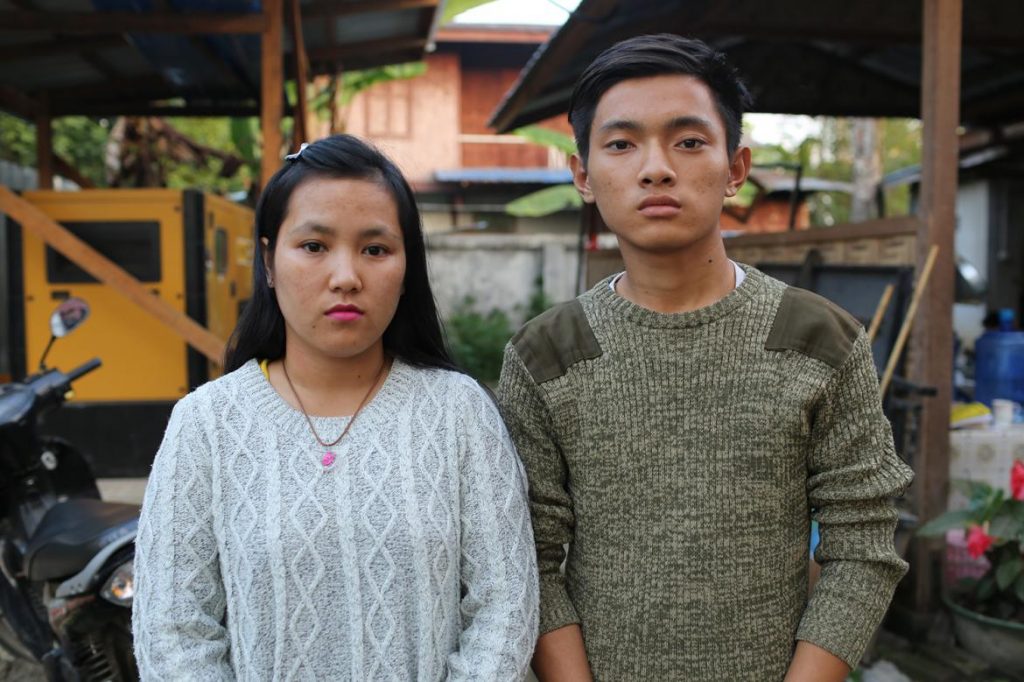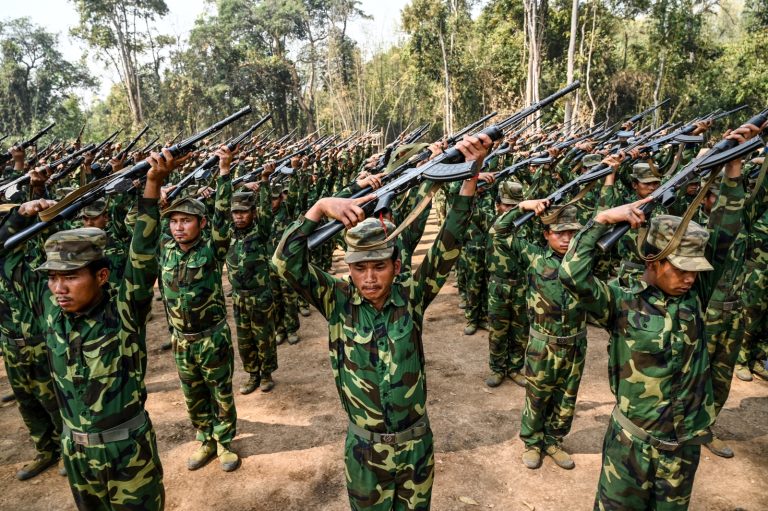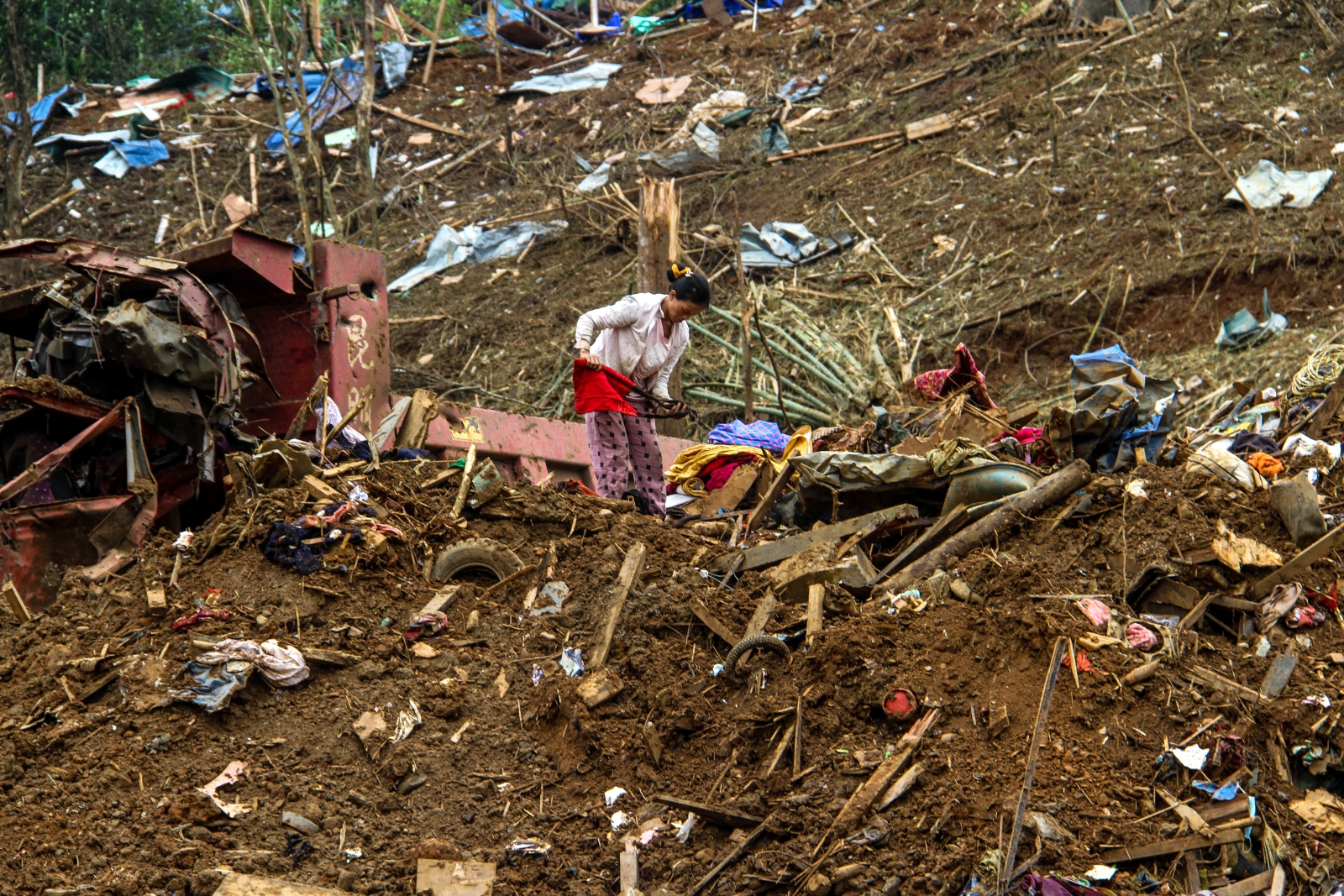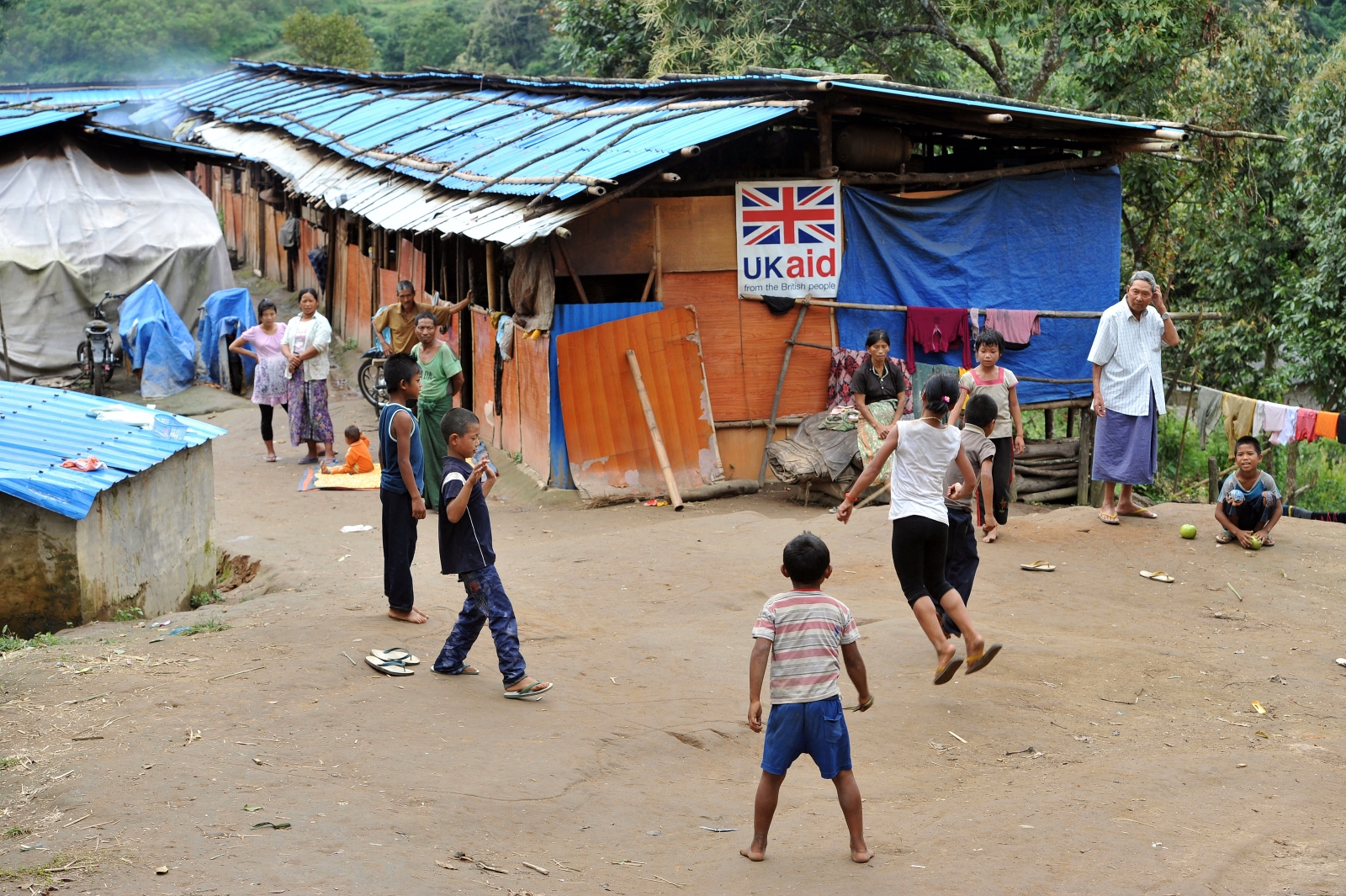By EMILY FISHBEIN | FRONTIER
MYITKYINA — Staff at the Myitkyina News Journal in Kachin State say they will not bow to pressure, after the managing director of Tha Khin Sit Mining Company pressed charges on March 13 for defamation, two weeks after employees of the company allegedly physically assaulted two of the journal’s reporters.
Ding Sau sued Myitkyina News Journal executive directors Brang Mai and Zau Khun and journalist Moon Moon Pan for defamation over an article published in the journal on February 25 about an alleged plan by the company to establish an illegal banana plantation.
Less than two weeks earlier, the Myitkyina News Journal reporters sued Ding Sau and five employees of Tha Khin Sit on five charges, for the detention and assault of reporters Moon Moon Pan and Ah Je on February 26. The accused company employees are expected to appear at Waingmaw Township Court on March 18.
According to Brang Mai, Ding Sau sued the journal under section 500 of the Penal Code because, “[The company] felt like their reputation was affected by our report”.
Support more independent journalism like this. Sign up to be a Frontier member.
He said the article, which included interviews with villagers about their concerns over the company’s alleged plans to clear land for banana plantations in Waingmaw Township, was misinterpreted as an accusation that the company was already operating the plantations.
“This case sets an example for the whole country. If we lose this case, it will show that other companies can treat journalists this way,” he said.
The day after the article was published, a representative from Tha Khin Sit visited the Myitkyina News Journal office in the state capital Myitkyina and summoned journalists Moon Moon Pan and Ah Je to the company’s office in Waingmaw, across the Ayeyarwady River from Myitkyina, where they were detained in separate rooms.
Moon Moon Pan said she was slapped across the face with a copy of the journal and Ah Je was ordered to do 100,000 squats, of which he completed 300 before one of the journal’s executive directors arrived with a police officer and two local administrators, and the detained journalists were released.
The next day, the Myitkyina News Journal charged six company employees under sections 114, 294, 323, 341 and 354 of the Penal Code, which cover assault or the use of criminal force against a woman “with intent to outrage her modesty”, obscene acts, wrongful restraint, voluntarily causing hurt, and abetment.
“They didn’t follow the law … They really acted like gangsters”, Brang Mai said.
Journalists defiant
The charges were filed amid an increasingly challenging climate for journalists in Myanmar. According to Athan, a civil society youth group that campaigns for freedom of expression, 44 journalists have been charged under various laws since the National League for Democracy-led government took office in 2016.
Journalists Moon Moon Pan and Ah Je told Frontier in Myitkyina earlier this month that they had never been threatened before. Now, Ah Je said, he no longer felt safe, particularly because he lived near the company’s office in Waingmaw.
But Ah Je, who had worked at the Myitkyina News Journal for just six months, said he would continue reporting as before. Asked why, he said, “If I stopped my job, I would lose to the company”. He said he was not afraid of the company because the reporters had solid evidence for their story.
Moon Moon Pan, who has worked as a reporter for five years, said she would also continue to work as a journalist, even though the incident threatened local press freedom.
Brang Mai told Frontier that the incident and the outcome of the cases would not affect what the journal chooses to report on. However, he said their approach towards staff security would change: “Because of this case, we will put more attention and concern on the security of our reporters.”
Banana plantations
The case comes at a time of increasing concern over the expansion of tissue culture banana plantations in Kachin State. In February, the Land Security and Environmental Conservation Networking Group, a coalition of eleven CSOs, released a report on the subject.
Their analysis, informed by satellite imagery, estimated that these plantations cover about 140,000 acres of land across the state. They also found that 59 percent of those renting their land to companies for banana plantations did so under pressure, threat, deception or duress.
Many of those renting their land have been displaced by the civil war between the Kachin Independence Army and the Tatmadaw, which resumed in 2011 after a long ceasefire. They have faced increasing pressure to rent land for commercial use, or risk it being reclaimed under the recently amended Vacant, Fallow and Virgin Lands Management Law.
The plantations have also sparked public health and environmental concerns, including chemical exposure among workers and the pollution of soil and waterways by chemical runoff. In early February, large numbers of fish died in two streams near a banana plantation in rural Waingmaw Township; local residents blamed a nearby plantation but a government investigation concluded, based on circumstantial evidence, that the fish may have been deliberately poisoned by villagers in order to harvest them.
Although most companies operating tissue banana plantations are widely believed to be either Chinese-run or joint ventures between Myanmar and Chinese companies, engaging in the banana industry semi-legally or illegally, little exists in the way of government records to clarify the origin of the companies or the extent of the banana plantations.
Companies are not required to state all of their business activities as part of the registration process with the Directorate of Investment and Company Administration, according to DICA officials. Until now, only one company has registered with DICA as operating banana plantations in Kachin.
— Additional reporting by Victoria Milko, Clare Hammond and Ye Mon.







